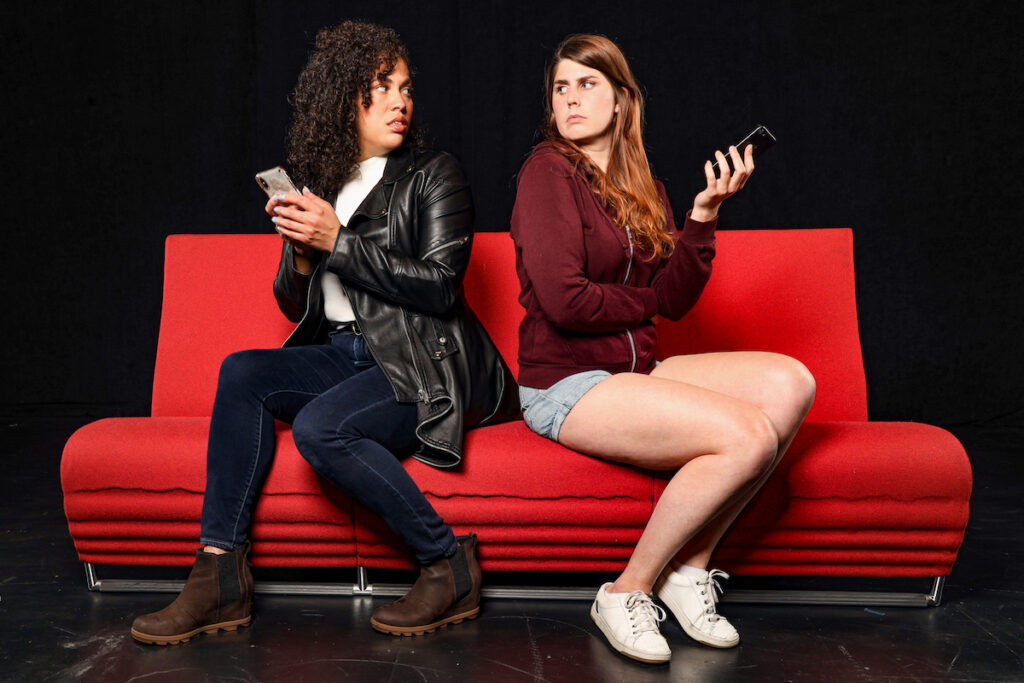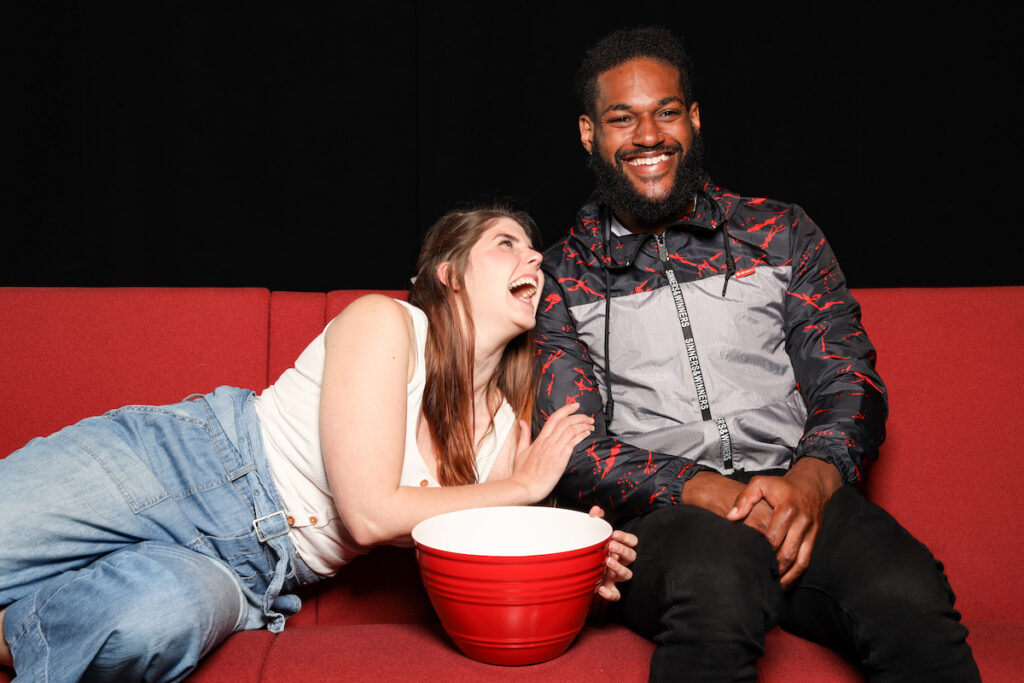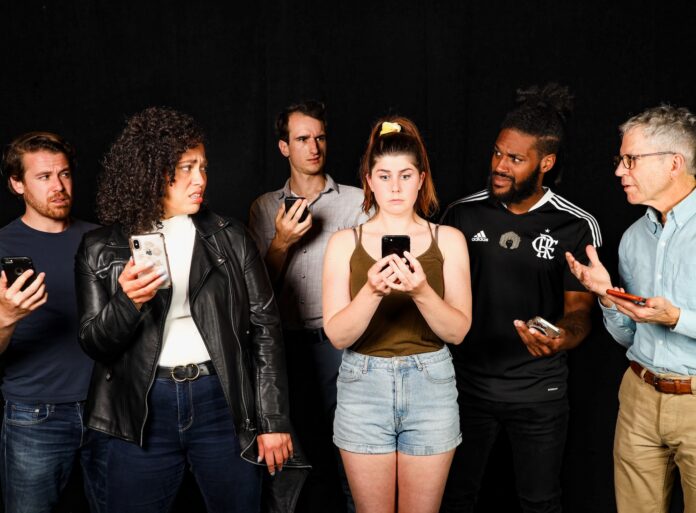Many years ago, I wrote a play review that didn’t sit well with the director. She’d deviated from the racially charged text (which wasn’t that great to begin with) by having a PoC actor as the villain who stalks and terrorizes a white woman as rap music plays. Oh, and he was made to resemble Trayvon Martin.
After writing how blatantly racist this was, the director contacted me directly. She then spent the next day-and-a-half—long after I’d stopped replying—sending me e-mails that 1) tried to explain her intent (which means nothing compared to what actually landed on stage), 2) tried defend the casting and rap music in a way that more or less had her defending blackface, and 3) tried to explain racism in general to my Black ass.
This woman was a local theatre “luminary” who made pro-BLM posts on social media after George Floyd’s murder. I remember laughing at that, reminiscing how I have an archived e-mail thread of this woman whitesplaining her racist artistic choices to me.
You can probably guess why this came to mind the opening night of Boys Go to Jupiter (through July 31 at Z Space). The “play”—actually a staging of Danielle Evans’ short story, complete with narrative prose—centers on a young white woman who, after being called out for her racial insensitivity, decides to dig in her heels rather than evolve from the experience. Then again, the characters are from the South, whose privileged population overall doesn’t think highly of evolution.
The young white woman in question is collegiate Claire (FaultLine Theater’s Ciera Eis as the only cast member to play only one character). Despite being a pretty smart gal, she falls for pickup-drivin’ good ol’ boy Jackson (Brennan Pickman-Thoon), whom she placates by letting him take a photo of her wearing a Confederate flag two-piece and holding a Bud Light tall can.

He posts it on Facebook, where her Black dorm-mate Carmen (Aidaa Peerzada)—with whom Claire has barely shared 10 words—sees the photo and comments on it. Suffice it to say, shit hits the fan and Claire suddenly finds herself ostracized before she takes advice from Campus Libertarians prez Robert (Evan Held) and is all but disowned by her father (Joel Mullennix) and step-mother (Courtney Walsh).
This being the digital age, it doesn’t take long before folks dig through Claire’s past. That’s when she’s forced to relive her Virginia childhood, when she had a Black best friend, Angela (Ije Success), who had a nerdy brother, Aaron (Tre’Vonne Bell), obsessed with astronomy—particularly the planet Jupiter. The fact that Claire’s childhood friends aren’t part of her new life may explain a few things, if she bothered to listen.
Incidentally, this was the second show in a row (after Martyna Majok’s Sanctuary City at Berkeley Rep), to feature a racial story that ends ambiguously. That’s not a necessarily a fault against Evans’ story—although this one simply stops, whereas Majok’s story has a proper dénouement—because it drives home the point that racism isn’t a problem that can simply be solved over the course of a 90-some-minute play. Point-of-fact, the “American individualism” idea that anyone can do what they want when they want is what has everyone sticking to their guns.

This tale of a social media photo being blown out of proportion finds us audience members literally and figuratively under the eyes of the characters, scrutinizing us for having taken part in this incident and doing nothing. It ends in our hands.
That’s all fine and well, but the story still falls into familiar tropes. Even with a Black woman holding the pen, it’s still a story about racism told from the point of view of a privileged white character rather than the Black characters who live through racism on a regular basis. The story would have been stronger had it been about, say, Carmen claiming betrayal from a white “friend” whom she barely knows. The revelation of Claire’s past with Angela and Aaron, the latter of which became romantic, doesn’t actually have all that much affect on the events happening to her now. The stories are both interesting contemporary stories of racism, but they don’t quite fit together.
Nevertheless, director Edris Cooper-Anifowoshe gets a lot of mileage from her cast and crew. She’s especially apt at playing up the comedy of Evans’ story, a lot of which revolves around the redneck cartoonishness of Jackson and the libertarian cartoonishness of Robert. Relationships between characters feel real, thanks in no short part to chemistry between cast members, who all play off one another like champion tennis players. Through Cooper-Anifowoshe’s sure and steady hand, the actors ring lots of laughs out of their characters, and find the moments of heart that make the pathos all the more palpable.
All of which is done on Sean Riley’s white picket-fence set, which seems to float in a dark void. The void is eventually filled by projections from Ray Oppenheimer (we see the incriminating photo, social media posts, headlines, and of course, the planet Jupiter), and lights by JennyB. I remember being particularly struck by the latter early on, when a scene transition has a spotlight on Claire that almost melts away as a Jupiter projection hovers in the background.

Being Word for Word’s first show since 2020 (in collaboration with Black Artists Contemporary Cultural Experience), I was happy to see they had vax checks and mask requirements. Z Space advertised these policies before COVID delayed the show’s original July 9 opening. Having said that, the person doing the vax check at the door made it a point to tell another patron that they’re “not checking for boosters at this point”, which I found bewildering with BA.5 running wild. The theatre proper was packed pretty tight, but limited to only the first few rows, leaving more-than-half the seats empty—whether that was just for opening night or the whole run, I don’t know? CO² readings (Aranet4) hovered around 569ppm for the entire runtime.
Boys Go to Jupiter simultaneously contains what conversations about race do and don’t need. It’s great when it’s a story about social media exacerbating the “discourse” beyond control, but it still winds up telling the sort of “white tears” tale some of its own characters criticize. However, the production is guided by an assured director with talented collaborators. If the latter point was Word for Word and BACCE’s goal, then in that regard, it’s a success.
BOYS GO TO JUPITER runs through July 31 at Z Space, San Francisco. Tickets and information here.





